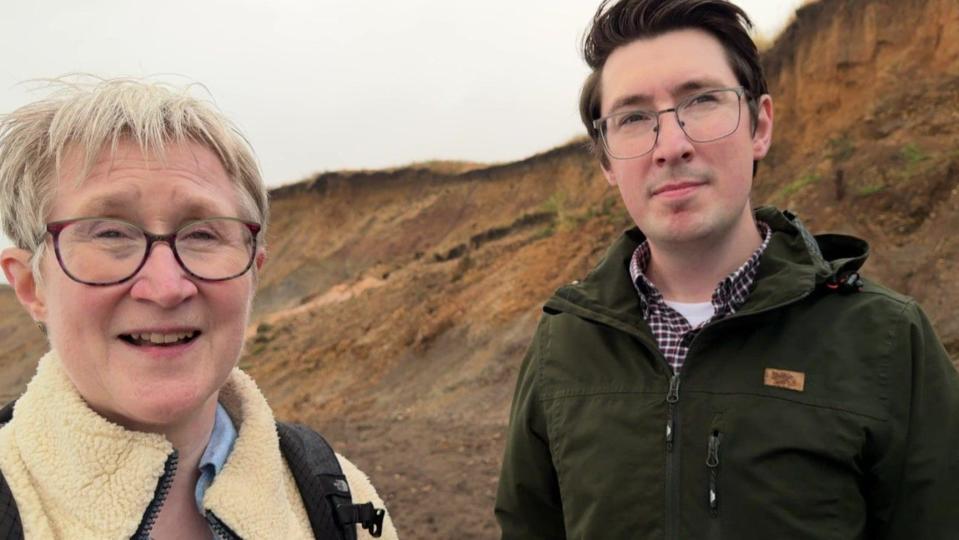'Most complete' dinosaur named in honour of finder
A new species of dinosaur unearthed on the Isle of Wight has been named in honour of the man who found it, following his death.
The 125 million-year-old specimen was found in Compton Bay on the Isle of Wight in 2013 by fossil hunter Nick Chase, who died of cancer in 2019.
PhD student Jeremy Lockwood determined the skeleton was a new genus and species, naming it Comptonatus chasei in a tribute to Mr Chase.
Mr Chase's son, Will, who was present at the excavation in 2013, described his father as "a wonderful man and a treasure for the island".

The fossilised bones are the most complete dinosaur discovered in the UK in the last century and are described in a new scientific paper.
Dr Lockwood, a retired GP, now studying at the University of Portsmouth, helped with the dinosaur’s excavation and spent years analysing its 149 different bones.
He said: "Nick had a phenomenal nose for finding dinosaur bones - he really was a modern-day Mary Anning.
"He collected fossils daily in all weathers and donated them to museums.
"I was hoping we'd spend our dotage collecting together as we were of similar ages, but sadly that wasn't to be the case."
Dr Lockwood said, despite Mr Chase's numerous discoveries - including the most complete Iguanodon skull found in Britain - this was the first dinosaur to be named after him.
Will Chase accompanied his father on numerous fossil hunting trips as a child, including the excavation of the Compton bones, which are now on display in the Dinosaur Isle Museum in Sandown.
He said: "From the age of four or five, Dad used to bring me on digs. I wasn’t exactly very helpful but I have such good memories of him from then.
"In 2013 - it was a lovely day in August - I turned up and I was digging some of the feet out, or the claws, and a piece snapped in half. I think he glued it together in the end.
"I grew up on this beach and I am so thankful for the time I spent with him down here."
Mr Chase's sister, Sarah, said her brother had always been obsessed with archaeology and palaeontology when they were growing up.
"Every house we lived in, the back garden would be dug up to a great depth," she said.
"He found stuff wherever he went.
"You could walk down any beach with Nick and he would come back with an arm full of finds. He just had the eye for it."
She said he unearthed the Iguanodon skull at Brook Bay after spotting a "minute" rib bone poking from the cliff.
"Nobody would take any notice of it but Nick said, 'there’s a dinosaur in there', and he was right - there was.
"It was a very important find. It had the most complete skull of any Iguanodon and over the following weeks and month he and various friends dug it out."
Ms Chase described her brother as "very generous", often giving bones he found to children on the beach or helping them identify their finds.
She said: "He didn’t make any money from it.
"All his scientifically important finds he gave to scientific institutions. He felt strongly that these things should be shared with everyone."
The newly described dinosaur is thought to have weighed about a ton (900kg) and was the size of a large male American bison.
PhD supervisor and senior author of the paper, Dr Susannah Maidment, said Dr Lockwood's research "continues to reveal that the diversity of dinosaurs in southern England in the early Cretaceous [period] was much greater than previously realised".
The paper has been published in the Journal of Systematic Palaeontology.
Follow BBC South on Facebook, Twitter, or Instagram. Send your story ideas to south.newsonline@bbc.co.uk.


